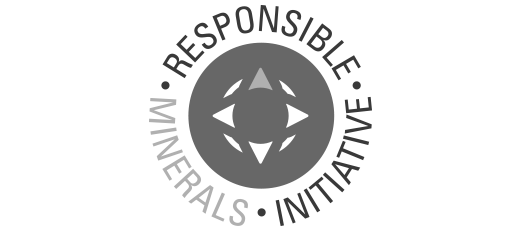The Responsible Minerals Initiative (RMI) has established itself as a commonly used and respected resource for companies in a range of industries addressing conflict minerals issues in their supply chains.
The RMI Downstream Audit provides a mechanism for companies to obtain independent validation of responsible sourcing practices. The audit is based on the OECD Due Diligence Guidance for Responsible Supply Chains of Minerals from Conflict-Affected and High-Risk Areas.
The audit applies to companies within the tin, tantalum, tungsten and gold supply chains who seek validation of their sourcing practices yet are not eligible to participate in the Responsible Minerals Assurance Process (RMAP).

The audit can be broken down in to two parts:
1. Audit standards:
The audit follows the ISO19011:2011 standard for management systems audits to assess a company’s processes to:
Monitor transactions of 3TG received and to maintain adequate documentation to confirm the origin of 3TG or 3TG containing product
2. What is assessed:
The audit is carried out against the OECD Due Diligence Guidance for Responsible Mineral Supply Chains from Conflict-Affected and High-Risk Areas.
The company’s due diligence system is designed and implemented in accordance with the OECD Due Diligence Guidance;
There is no reason to believe goods directly or indirectly financed or benefited armed groups that are perpetrators of serious human rights abuses in the DRC or an adjoining country;
All sources of 3TG are identified and confirmed to be scrap or recycled material; and/or Responsible Minerals Assurance Process (RMAP) or equivalent validated companies.
| Cookie | Duration | Description |
|---|---|---|
| cookielawinfo-checkbox-analytics | 11 months | This cookie is set by GDPR Cookie Consent plugin. The cookie is used to store the user consent for the cookies in the category "Analytics". |
| cookielawinfo-checkbox-functional | 11 months | The cookie is set by GDPR cookie consent to record the user consent for the cookies in the category "Functional". |
| cookielawinfo-checkbox-necessary | 11 months | This cookie is set by GDPR Cookie Consent plugin. The cookies is used to store the user consent for the cookies in the category "Necessary". |
| cookielawinfo-checkbox-others | 11 months | This cookie is set by GDPR Cookie Consent plugin. The cookie is used to store the user consent for the cookies in the category "Other. |
| cookielawinfo-checkbox-performance | 11 months | This cookie is set by GDPR Cookie Consent plugin. The cookie is used to store the user consent for the cookies in the category "Performance". |
| viewed_cookie_policy | 11 months | The cookie is set by the GDPR Cookie Consent plugin and is used to store whether or not user has consented to the use of cookies. It does not store any personal data. |